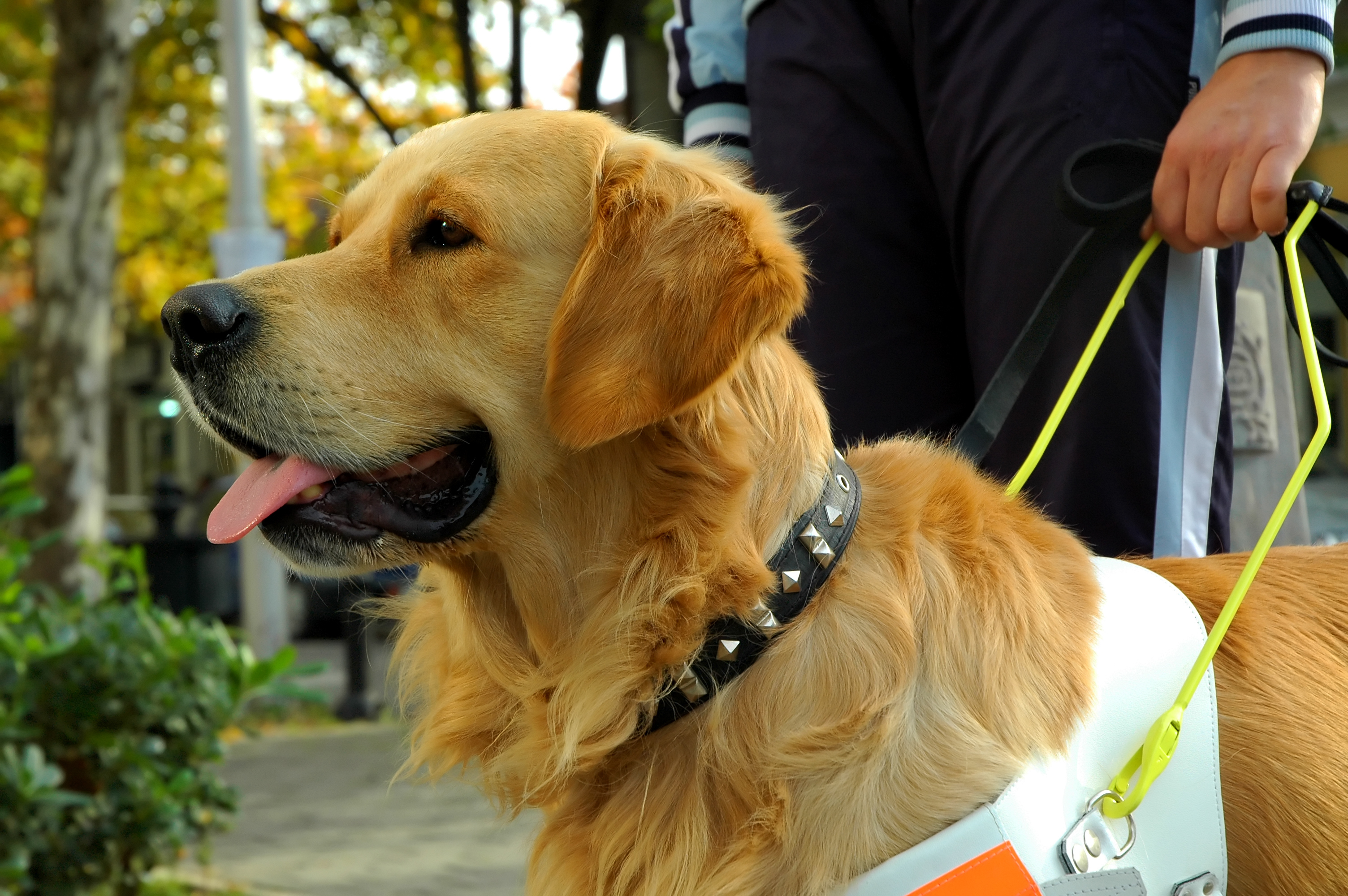![]()
Although most of us have seen individuals working with service dogs out in public, you may find yourself somewhat unsure of how to respond if someone walks into your place of business with a service dog. Do you allow them inside? Should you ask if it’s trained? Who’s liable if it bites someone? What if other customers are allergic? Maybe it’s just easiest to ask them to leave, after all, how can you know it really is a legitimate service dog and not just someone who doesn’t want to be separated from their animal?
There are a lot of laws that govern what can and can’t be done in regard to service animals. For openers, you must allow a legitimate service dog into your place of work. Can you legally ask them if it’s a service animal and require proof? What if it is an actual service dog and it hurts someone or destroys something?
The Americans with Disabilities Act (ADA) regulates the use of service animals, and sets the guidelines for what the user can and can’t do, what they are responsible for, and how businesses may legally respond to them. Let’s look at some of these laws and how they may affect you.
First, you’ll need to know what constitutes a service animal. According to the laws regulating service animals, dogs and miniature horses that are individually trained to do work or perform tasks for people with disabilities are service animals. For the most part, dogs are the animal of choice for assisting individuals with disabilities. We’ll touch on miniature horses a bit later.
Most of us are familiar with guide dogs that assist people with vision difficulties, but there are many other types of disabilities that service animals are appropriate for, including alerting people with hearing loss that someone is at the door, calming down someone who has PTSD when they are feeling overwhelmed, reminding individuals to take their medications, or alerting them to an on-coming seizure, and much, much more. If the animal’s sole purpose is to provide comfort or emotional support, they do not qualify as service animals under the ADA.
Service dogs are not considered pets under the ADA, but rather as necessary equipment. But pet or helpful assistant, service animals must be under control at all times. They must be harnessed, leashed, or tethered unless it interferes with the handler’s disability. Even then, the handler must maintain control over the animal whether that means using verbal cues or hand signals.
Under the ADA as a general rule, all title II and title III entities must permit service animals to accompany people with disabilities in all areas where members of the public are allowed to go. Remember that most disabilities are hidden, so it may look to you as if the handler does not have a disability. How can you know whether it’s a trained service dog or just someone bringing their dog in with them? By asking, but be very careful: the law only allows you to ask very specific questions in regards to someone’s disability. You may ask two questions:
- Is this animal required because of a disability?
- What work or task has this animal been trained to perform?
You may not ask about the individual’s disability. You may not ask these questions if the handler’s disability is obvious. You may not require any special card or other documentation or ask that the dog demonstrate its’ special talent. The service dog does not even have to wear an identifying vest.
In addition, you may not prevent a service animal from entering your establishment based on other individuals being allergic to it. If there is someone in your business who complains of being allergic to the animal, you are obligated to allow both of them there, but try to keep some distance between them, when possible.
Is there ever a time you can ask a person with a service animal to leave the premises? Yes, if the animal is out of control and the handler doesn’t take action to control it, or if it is not housebroken. In these instances the person with the disability must be allowed the opportunity to conduct their business without the service dog present if they can do so.
If you work in establishment were food is served, you must still allow service animals in public areas. This is true even if state or local health codes prohibit animals on the premises.
An individual using a service animal cannot be isolated from other customers, or treated less favorably, or charged fees related to their use of the animal. In fact, if a business charges a deposit or fee to other customers with pets, they must waive the charge for service animals. Remember, under the law they are not pets, they are equipment. If the animal damages something, the handler will have to pay for repairs.
While miniature horses are included in the definition as service animals, there are four separate provisions covering their use:
- The horse must be housebroken,
- It must also be under control at all times,
- The business must assess whether they can accommodate the horses’ type, size, and weight, and
- The presence of the miniature horse may not compromise the operation of the facility.
There is much to remember when confronted by a service animal in your place of business. You don’t want to break the law where service animals are concerned, yet you also don’t want to expose your business to individuals who do not have a legitimate service animal. Knowing what to ask and what your obligations are can help make this a good experience for everyone.
Christine Wistrom is part of the GovLoop Featured Blogger program, where we feature blog posts by government voices from all across the country (and world!). To see more Featured Blogger posts, click here.





Thanks for this detailed information about service dogs and how I know what to do around them. In our church group there is a lady that brings her dog and I wanted to learn more about it. Interesting that people are able to ask what task the dog has been trained to perform. It seems to be a bit invasive to the dog owner.
http://usaservicedogs.org/